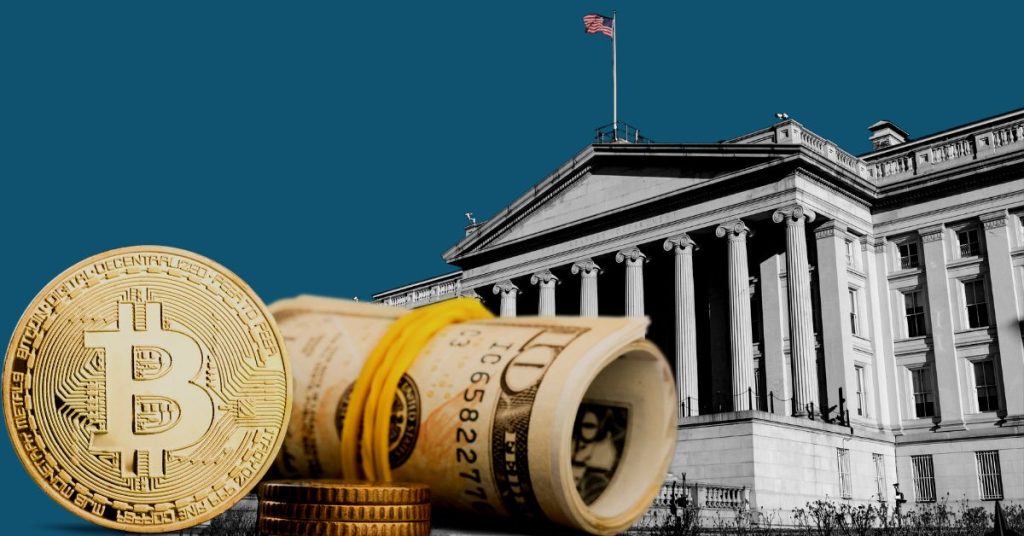- January 16, 2025
- Posted by: admin
- Category: BitCoin, Blockchain, Cryptocurrency, Investments


The post BitMEX Fined $100 Million for Anti-Money Laundering Violations; What Went Wrong? appeared first on Coinpedia Fintech News
The cryptocurrency exchange bitMEX

bitMEX
–
[email protected]
Centralised Exchange
run by HDR Global Trading Limited, was fined $100 million by the US authorities due to violation of anti-money laundering regulations. It is one of the serious enforcement actions reported against the crypto sector. Indications are quite severe about compliance.
Background of BitMEX Violations
From 2015 to 2020, BitMEX did not practice satisfactory Know Your Customer and AML measures. Prosecutors from the US said the exchange consciously failed to heed the regulations concerning finances, thereby permitting money laundering. Although the exchange operated across the globe, BitMEX also illegally traded with US clients without the relevant regulatory registration.
Reports suggest that BitMEX’s leadership disregarded internal compliance warnings. Employees voiced concerns about the lack of adequate AML measures, but the company prioritized rapid expansion over regulatory adherence. The internal culture at BitMEX was reportedly lenient toward cutting corners, which contributed to its violations.
Legal Actions and Penalties
The legal case led by US District Judge John Koeltl resulted in a $100 million fine for the exchange. In addition, BitMEX’s founders—arthur hayes

arthur hayes
Arthur Hayes is an American investor, business visionary, subsidiary merchant, Bitcoin advocate, and a fintech pioneer. He was the co-founder, and CEO of BitMEX alongside Ben Delo and Samuel Reed. BitMEX was established in 2014, the parent organization is HDR Global Trading. He is the previous CEO of BitMEX and parent organization 100x Group. BitMEX is an advanced resource exchanging stage that has exchanged trillions of dollars on the cryptographic money trade. BitMex is situated in Seychelles. He is situated in Hong Kong. In October 2020, He ventured down as CEO of BitMEX.BitMEX is the first crypto trade to be charged under the bank security act. The regulations expect that exchanges that are more than $10,000 should be accounted for. It is known as Know Your Customer (KYC) information. He ventured down from BitMex in October 2020. Alexander Hoptner supplanted Hayes as CEO of BitMEX. He moved to Hong Kong in 2008, to begin his speculation banking profession. He worked for Deutsche Bank, as a value subordinates broker, and for Citigroup for a long time. He functioned as the head ETF market producer for the two firms. In 2011, He left Deutsche Bank and started working for Delta 1 broker for Citibank in Hong Kong. His interest in Bitcoin began in 2013, after perusing the Satoshi Nakamoto's white papers. He is the most youthful African American crypto tycoon ever.
Details
Organization: BitMex
Location: Hong Kong
Education: Bachelor of Science in Economics, Finance from the University of Pennsylvania and Bachelor of Science in Economics and finance from The Wharton School
Skills: Trading and Swaps
Experience:
Chief Investment Officer at Maelstrom from Dec 2022 – Present
Co-Founder at 100x Group from Oct 2020 – Present
Co-founder and CEO at 100x Group from Jul 2019- Oct 2020
CEO at BitMEX from Jan 2014 – Oct 2020
Delta One Trader (Associate) at Citi from Jun 2011 – May 2013
Associate at Deutsche Bank from Jul 2008 – Jun 2011
Synthetic Equity Trader at Deutsche Bank from Jun 2008 – Jun 2011
FAQ's
1. When was Bitmex founded?
BitMEX was Launched in 2014.
2. What other roles does Arthur Hayes hold?
After BitMEX, Hayes became the Chief Investment Officer at Maelstrom
EntrepreneurInvestorChief Executive OfficerTrader
Benjamin Delo, and Samuel Reed—were fined $30 million collectively and sentenced to probation. The DOJ had initially sought much higher penalties, with settlement demands exceeding $200 million at one point.
BitMEX faced a $100 million civil settlement with the Commodity Futures Trading Commission in 2021 for similar violations. This stream of penalties illustrates an increasing aggressiveness from US regulators to tackle cryptocurrency platforms.
Response and Reforms by BitMEX
After the enforcement actions, BitMEX has publicly claimed to have overhauled its compliance systems. The exchange has adopted very sophisticated KYC protocols and heightened its observance of regulatory requirements. However, this has come at a heavy cost in terms of the reputational damage suffered by the company.
Wider Implications for the Industry
The case of BitMEX anti-money laundering became the watershed for regulation in the space of cryptocurrencies. The US agencies are now warning of stricter enforcement as they await every exchange to strictly abide by robust compliance mechanisms. The case highlights violating financial laws, especially in terms of heavy fines and damage to reputation.
Key Chronology
- 2015–2020: Years of regulatory violations
- 2021: $100 million civil settlement with the CFTC
- 2024: Plea of guilt by BitMEX
- 2025: Imposition of the final $100 million fine.
Lesser-Known Insights
Insider reports further reveal even deeper issues: BitMEX suffered from significant underinvestment in the legal and compliance teams as key factors. Communications between different stakeholders indicate how often management refused to heed cautions about its risky approach, bypassing official regulation. Here are some accounts of a firm that underestimated increased attention from regulation toward the industry as the cryptocurrency boom picked up momentum.
Moreover, the lawsuits against BitMEX have caused other cryptocurrency exchanges to reexamine their compliance frameworks. According to industry analysts, there is an increased number of exchanges going that extra mile to improve their AML and KYC processes to evade such punitive steps.
Never Miss a Beat in the Crypto World!
Stay ahead with breaking news, expert analysis, and real-time updates on the latest trends in Bitcoin, altcoins, DeFi, NFTs, and more.
FAQs
The exchange failed to comply with AML laws and KYC policies, which enables illegal transactions in the platform-including those emanating from customers in the United States.
The exchange paid $100 million in fines for its various regulatory infractions.
It shows the authorities are keen on enforcing stricter rules, and those who fail will face severe punishments.




